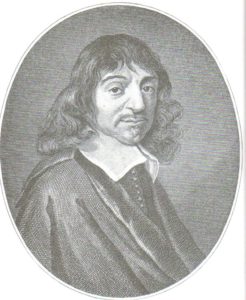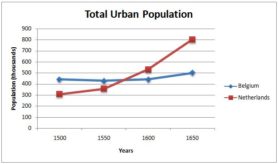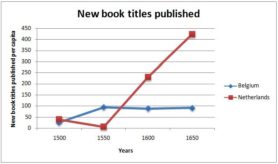Blog
The Dutch Knowledge and Information Society
On the 21st of March next year the Netherlands will have a referendum on something that is generally referred to as the ‘sleepwet’. This bill proposes that the Dutch intelligence and security services, the AIVD and MIVD, should be authorized to collect and store data from citizens on a massive scale, regardless of whether they are suspected to be involved in any crime or offense.[1] A significant portion of the Dutch population seems to be afraid of the consequences of such a law, hence the referendum, and fairly so. According to historian Yuval Harari data is the most valuable resource of our time, he comes to such a conclusion by looking at the past. As an example he gives that in the past large conflict were about land, later on after the industrial revolution they were about means of production and perhaps in our time the biggest conflicts will be about data.[2] Growth and inequality might arise because of data. That obsession with data, with information has to have started somewhere though. In a paper that I have written recently I explore inequality that has arisen from the possession and generation of information in the past, more particularly how the Netherlands grew compared to Belgium, because it became a knowledge and information society around the 1570s. According to Krohn a knowledge and information society is defined as a society in which “collecting, copying, storing, transmitting, incorporating, manipulating, simulating and managing information of every aspect of collective and individual life” and in which consequently experts attempt to make sense of all that information.[3]
So how could the Netherlands have become such a society and not Belgium at that specific time? A large part of the answer is probably migration. Between 1572 and 1630 about 100,000 to 150,000 people migrated from the Southern regions of the Netherlands, what we call Belgium today, migrated to the Northern parts of the Netherlands. Also from other regions in Europe people migrated to the Republic of the Netherlands. There are a variety of reasons why they did so, from religious to economic, but what is more important is what they brought with them; knowledge and information. A well-known example of a migrant that brought his knowledge to the Netherlands was René Descartes. The Short-Title Catalogue Netherlands contains a large volume of books published by him ranging from subjects like philosophy to geometry.[4] A specific example of a man who migrated from Antwerp to Leiden carrying his knowledge with him was Willem Sylvius. He was the former town printer from Antwerp, but migrated to the Netherlands were he shortly became a printer for the university of Leiden. His knowledge clearly being more practical knowledge of typefounding, printing and publishing than Descartes’ theoretical knowledge, both nonetheless valuable.

Migration of people like Descartes and Sylvius shaped available data sets to the way they are, as I propose in my paper. Most importantly they shaped the available data on the amounts of new books published. Between 1500 and 1650 the amount of books published in the Netherlands exploded compared to Belgium, publishing around four times as many books by 1650.[5] The production of books shows that information was not merely being collected but also being written about, especially because thousands of academic texts were being published,[6] including those by Descartes. Another influence that immigrants had on the data sets was the rapid increase of the amount of people
inhabiting cities. In 1500 the Netherlands had less people living in cities than their Southern neighbors, while by 1650 the Netherlands had a almost twice as large total urban population.[7] The amount of people living in an urban setting was significant to the Dutch Republic becoming a knowledge and information society because those were the place where knowledge was actually generated and where information was being collected, hence why universities were also founded in urban settings particularly by the sea, such as Amsterdam.[8]


This leads me to conclude that the Netherlands became a knowledge and information society somewhere shortly after the 1570s rather than Belgium. Firstly, because migration caused the urban settings to flourish creating a good condition for the generating of knowledge and gathering of information. Whereas in the Southern regions the total urban population stagnated. Secondly, because migration brought an influx of knowledge and information leading to an increase in the amount of books published the in 17th century, especially when compared to the South as they were not nearly producing as many books, let alone academic texts as the Dutch republic. Perhaps this was a beginning to the obsession with data that has come about in our day and age as explained by Harari.
[1] Pim van den Dool, “Referendum over Sleepwet gaat definitief door,” NRC (November, 2017), https://www.nrc.nl/nieuws/2017/11/01/referendum-over-inlichtingendiensten-gaat-definitief-door-a1579482
[2] Yuval Harari, „Toekomst van de Homo Sapiens,” Tegenlicht, VPRO, 2017, https://www.vpro.nl/programmas/tegenlicht/kijk/afleveringen/2017-2018/mensen-goden-en-technologie.html
[3] Wolfgang Krohn, (2001) “Knowledge Societies,” in N. J. Smelser and P. B. Baltes (eds) International Encyclopedia of the Social and Behavioral Sciences (Oxford: Blackwell), 8139.
[4] National Library of the Netherlands, Short-Title Catalogue Netherland, 2015, http://picarta.nl/DB=3.11/LNG=EN
[5] Jonathan Fink-Jensen, Book Titles per Capita, Clio Infra Database, 2015, http://hdl.handle.net/10622/AOQMAZ
[6] National Library of the Netherlands, Short-Title Catalogue Netherland, 2015, http://picarta.nl/DB=3.11/LNG=EN
[7] Jonathan Fink-Jensen, Total Urban Population, Clio Infra Database, 2015, http://hdl.handle.net/10622/KICLW5
[8] Patrick K. O’Brien, “The Needham Question Updated: A Historiographical Survey and Elaboration,” History of Technology, 29 (2009)

